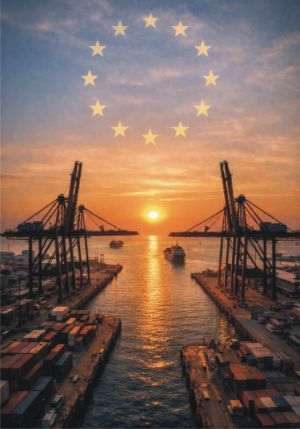Andreea Arăboaei
Accessing a loan from the two state owned banks, EximBank and CEC Bank, can take two or some times even three times longer than in the case of other banks, according to Mihai Ionescu, chairman of the National Association of Exporters and Importers of Romania (ANEIR).
This has caused exporters and representatives of the business environment to criticize the two banks for the bureaucracy involved in granting loans, during a meeting with the officials of the National Bank of Romania (BNR), Thursday night. Moreover, the two banks allegedly reject "en masse", and sometimes without any valid reasons, loan applications, even though these banks, whose majority shareholder is the Romanian state, were supposed to use the complete capital they have on hand for funding economic activity, not for mortgage or consumer lending, Mr. Ionescu explained.
To this end, AOAR (Association of Romanian Business People) suggested to the National Bank the creation of a type of bank ombudsman, based on the French model, that would review loan applications submitted by companies, which were rejected by the banks, Cristian Pârvan, secretary general of the AOAR, said.
He also mentioned that prime-vice-governor Florin Georgescu explained, during Thursday"s meeting, that such an entity that solves fee issues and other issues that customers may have with the banks already exists. However, the officials of the business environment feel that a mediator that would "review applications rejected by the bank from A to Z" is needed.
During the meeting at the Central Bank, AOAR also requested that the government come up with a solution to guarantee corporate loans and to publicly announce the eligibility requirements for such state aid. Mr. Pârvan also explained that this requires the creation of a Fund that would have to be included in the anti-crisis package. "A similar measure was applied in Germany, through the second EUR 50 billion anti-crisis package", the secretary general of AOAR said.
Mihai Ionescu also expressed his discontent with the depreciation of the leu in the last six months, which was favourable to exporters, but the latter do not want the exchange rate to be kept this high. "We are OK with a 3.6 - 3.8 lei/Euro exchange rate, that we were used to. As long as the leu does not appreciate abruptly, exporters can insure their contracts", Mr. Ionescu said.
The discussions with the leaders of the Central Bank, exporters and business people were held Thursday night, with the main issues on the agenda being the resumption of lending to companies and the impact of the agreement with the IMF on the economy and the exchange rate.
Mihai Ionescu: Accessing a loan from the two state owned banks, EximBank and CEC Bank, can take two or some times even three times as long than in the case of other banks.
























































